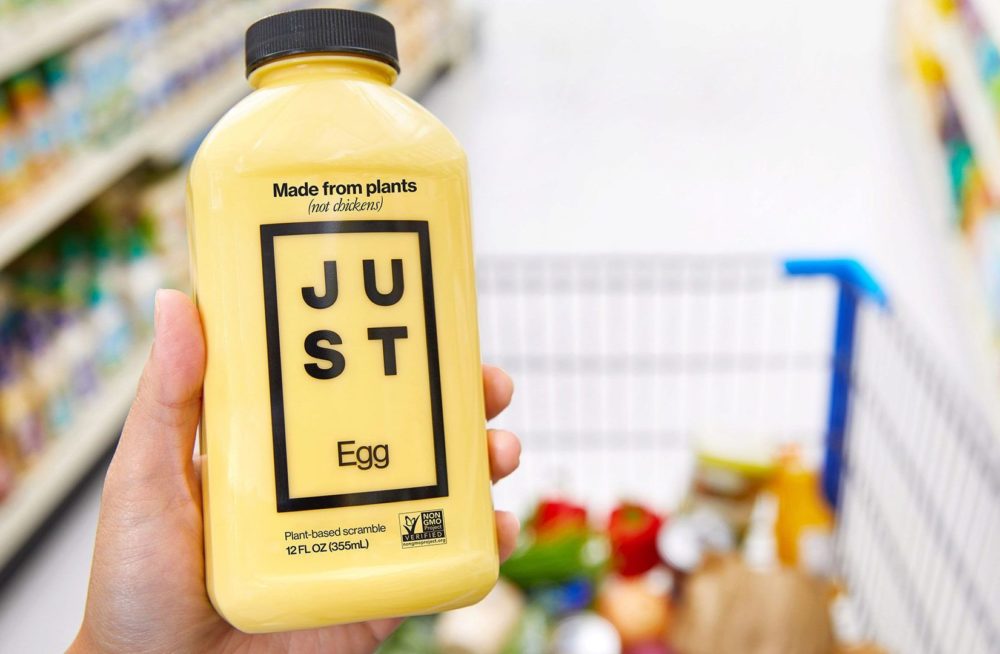San Francisco’s Eat Just, which is developing a range of plant-based and ‘lab-grown’ alternative proteins, has received the world’s first regulatory approval to sell meat cultured from animal cells to consumers.
The Singapore Food Agency (SFA) approved Eat Just’s cultured chicken meat for sale in the Southeast Asian city-state after a “rigorous consultation and review process,” the US startup said in a statement.
The cell-based chicken meat has been cleared for use as an ingredient in the production of ‘snack bites.’ Eat Just said it has additionally developed other “cultured chicken formats” that will be available as an “extension to this product line.”
Describing the regulatory clearance process, Just Eat said it completed more than 20 production runs in 1,200-liter bioreactors in order to demonstrate a “consistent manufacturing process” for its cell-based chicken meat. It was also able to show the SFA that its product met existing poultry industry standards, with “extremely low and significantly cleaner microbiological content” than conventional, animal-derived meat.
Today’s announcement of the regulatory clearance will be followed by a wider commercial launch in Singapore of Eat Just’s upcoming Good Meat range. The startup has been working with Singaporean manufacturers to produce chicken cells and formulate its finished product before going on sale, initially to restaurants and later directly to end consumers via retail channels.
“Singapore has long been a leader in innovation of all kinds, from information technology to biologics to now leading the world in building a healthier, safer food system,” Eat Just co-founder and CEO Josh Tetrick said in a statement.
“I’m sure that our regulatory approval for cultured meat will be the first of many in Singapore and in countries around the globe. Working in partnership with the broader agriculture sector and forward-thinking policymakers, companies like ours can help meet the increased demand for animal protein.”
In a statement sent to AFN, Elaine Siu, managing director at the Good Food Institute (GFI) Asia-Pacific, said “nations that follow Singapore’s lead will be able to reap the benefits as the entire world shifts to this new and better way of making meat.”
“This is a breakthrough that will have a rippling effect on the global cellular agriculture industry,” she added. “This is a modern-day space race among countries to ensure food security and safety, and to position themselves wisely in the alternative protein sector to boost their economies.”

GFI director of regulatory affairs Elizabeth Derbes said it is “no surprise” that Singapore has become the first country to grant regulatory approval for a ‘lab-grown meat’ product, given the SFA “has long been in the vanguard of global regulators in its study of the cultivated meat industry and its careful consideration of the best approach for regulating cultivated meat, poultry, and seafood products.”
“We are confident that SFA’s safety standards for these groundbreaking foods have been carefully calibrated to ensure consumer safety,” she said.
Singapore has produced a number of alt-protein and novel ingredient startups of its own. Among them is cultured seafood maker Shiok Meats, which raised $12.6 million for its September Series A round. After starting out with cell-based shrimp, the startup last week unveiled what it claims is the world’s first ‘lab-grown’ lobster meat.
Since launching in 2011 Eat Just has raised a total of $220 million in funding, according to Crunchbase data. US-based Khosla Ventures and Hong Kong’s Horizons Ventures are among the VC firms to have backed the startup.
Eat Just is perhaps best known for its plant-based egg and mayonnaise substitutes. In October, the company announced a partnership with a consortium led by agrifood investment firm Proterra to ramp up production of its egg alternative in Asia. Together, the partners will invest up to $120 million to build a production facility for plant-based protein in Singapore to serve manufacturers and distributors across the region.
Got a news tip? Email me at [email protected] or find me on Twitter at @jacknwellis





